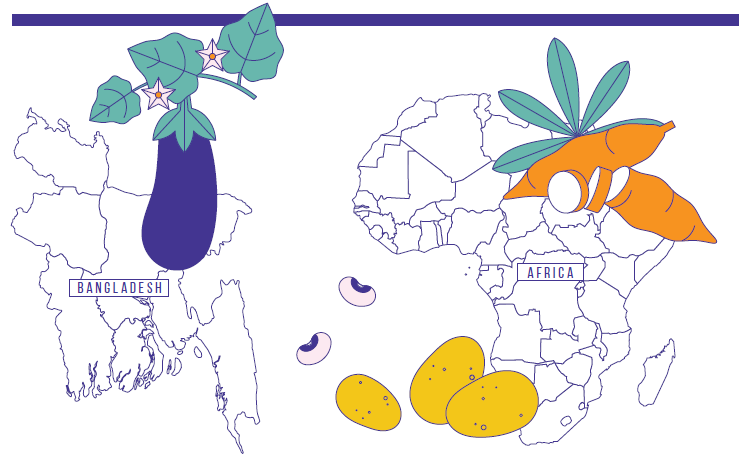GMO Crops and Humanitarian Reasons for Development
GMOs impact the lives of farmers in many parts of the world. The U.S. Agency for International Development (USAID) is working with partner countries under the U.S. Government's Feed the Future initiative to use genetic engineering to improve staple food crops, to sustain farmers’ livelihoods, and to increase food security. Staple food crops are the basic foods that make up a large portion of people’s diets worldwide.
GMO Eggplant
A GMO eggplant that is resistant to insects has been made available to farmers in Bangladesh since 2014. Farmers who grow these eggplants are earning more, spending less, and reducing their exposure to pesticides, as compared to other eggplant growers.
Additional GMO Staple Crops
USAID is also working with partner countries in Africa and elsewhere on several staple food crops, such as virus-resistant cassava, insect-resistant cowpea, and blight-resistant potato. These varieties aim to allow farmers to produce a sustainable and safe food supply for local consumers while increasing the stability of their livelihoods.


